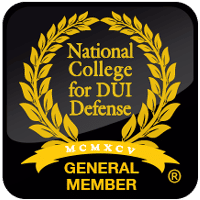Menu
Differences Between State and Federal Drug Crimes
May 23rd, 2018

Facing Charges of State or Federal Drug Crimes? Just Criminal Law
State and federal drug crime laws prohibit the possession, manufacture, and sale of controlled substances, including drugs like marijuana, methamphetamine, ecstasy, cocaine, and heroin.
In some cases, whether a drug is legal or illegal depends on why and how it is being used. For example, amphetamines are used to treat attention deficit disorder; barbiturates can help treat anxiety; and marijuana is used to treat cancer-induced nausea. But the unprescribed and unsupervised use of these drugs and others like them is thought to pose a danger to individuals and society in general and, therefore, has been deemed to be illegal. For decades, lawmakers have regulated the use, abuse, manufacture, and sale of drugs that are listed as controlled substances.
Drugs Are Classified According to Schedules
In legal literature drugs are referred to as “controlled substances.” A “controlled substance” means that the use and distribution of the substance is governed by state or federal law.
Controlled substances are divided into five categories, known as Schedules, based on whether the drug currently has an accepted medical use, and the drug’s potential for abuse and its likelihood of causing addiction. Drugs listed in Schedule I have no currently accepted medical use in the United States and have a high likelihood of abuse and addiction. Drugs listed in Schedules II through V have some accepted medical use and a comparatively lower likelihood of abuse and addiction.
Examples of drugs listed on each Schedule include:
- Schedule I: Heroin, LSD, Marijuana, Methaqualone
- Schedule II: Morphine, PCP, Cocaine
- Schedule III: Anabolic Steroids, Codeine, Hydrocodone, and some Barbiturates
- Schedule IV: Most Benzodiazepines such as Valium and Xanax
- Schedule V: Over the counter cough meds with codeine
Laws on Controlled Substances Govern State and Federal Drug Crimes
The federal government has its own strategy to combat the use, abuse, and distribution of controlled substances. Each state also has its own laws that pertain to the use, manufacture, and distribution of drugs. If you believe that you are suspected of a state or federal drug crime, or if you have been charged with a drug offense, it’s important to understand the intersection between state and federal laws as they relate to controlled substances.
A primary difference between state and federal drug crimes is the severity of consequences after a conviction. Federal drug charges usually carry harsher punishments and longer jail sentences and are often charged as felonies. State drug charges for possession without the intent to distribute can be charged as felonies or misdemeanors, and usually have a lighter sentence.
The most common federal drug crime is trafficking, especially across state borders, while the most common drug crime at the state level is for possession. A person can be charged with distribution, trafficking, manufacturing, or cultivating drugs or controlled substances under either federal or state law. Whether a person is charged under state or federal law will usually depend on the amount of the controlled substance in question.
Common State and Federal Drug Crimes
“Distribution” means that a person is accused of selling, delivering, or providing a controlled substance illegally. A person may be charged with distribution if they try to sell drugs to an undercover police officer.
“Trafficking” also refers to the illegal sale or a controlled substance; however, whether a person is charged with distribution or trafficking often depends on the amount of the controlled substance in question, rather than on whether the drugs were crossing state lines.
“Manufacturing” or “cultivating” drugs refers to the making or growing of a controlled substance, and includes growing, possessing, or producing naturally occurring elements to make illegal controlled substances. Manufacturing or cultivating may include possessing cannabis seeds or growing marijuana plants, or producing chemical substances in a laboratory that can be used to make LSD, cocaine, or methamphetamine.
Possession is the most common drug charge under Wyoming state law, and involves possessing a controlled substance. To find a person guilty of possession of a controlled substance the prosecution must show that the accused person: (1) knowingly and intentionally possessed the controlled substance; (2) without a valid prescription; and (3) possessed a quantity sufficient for personal use or sale.
A person can also be charged with “constructive possession” under state or federal drug crime laws. Constructive possession means that a person did not actually have the controlled substance on their person, such as in a pocket, but had access to and control over the place where drugs were found, such as a locker or a car. Unlike a DWUI, the government does not need to prove that the person was using a controlled substance to charge them with possession. This is often the theory used to charge someone when drugs are found in a car during a traffic stop.
It is also illegal to possess paraphernalia associated with drug use, such as syringes, pipes, scales and, in certain cases, even baggies.
How State and Federal Drug Crimes Escalate
State and federal drug crimes often start with possession, then lead to more serious offenses. For example, if the police find marijuana plants in someone’s home, that person can be charged with possession. If there are enough plants, the government might also charge that person with distribution, trafficking, and/or manufacturing a controlled substance.
Possession charges are usually less serious than charges for possession with intent to distribute. The difference is not whether the person in possession of the drugs had the actual intent to distribute the drugs. Rather, whether a person is charged with intent to distribute will depend on the amount of drug in that person’s possession and, in many cases, how it was stored (e.g. stored in bulk or packaged for sale).
Will a Drug Offense be a State or Federal Drug Charge?
Most drug arrests are made by local police; however, anyone arrested for a drug crime can be charged with a state or a federal offense. Drugs are illegal at both the state and federal level and can be charged as a state or federal crime.
The easiest way to find yourself facing federal drug charges is to be arrested by a federal officer. This could be the result of something like smoking marijuana on national land, such as a national park, to being picked up by the Drug Enforcement Agency (DEA).
Other people end up charged with a federal drug crime because someone else informed on them. Someone facing drug charges may get leniency by identifying other people involved in the drug trade. Other times people face federal charges because of decisions made in private by state and federal prosecutors.
The federal criminal system is notorious for the severity of its mandatory minimum sentences for possession of even a small amount of drugs.
Charged with a State or Federal Drug Crime? Contact Just Criminal Law
If you or someone you care about has been charged with a state or federal drug crime, you need a skilled and experienced drug crime attorney on your side to protect your one shot at justice.
The team of criminal defense professionals at Just Criminal Law has extensive experience defending people who are facing state or federal drug crime charges. Contact us today at (307) 686-6556, email office@justcriminallaw.com, or complete our online form.
DISCLAIMER: The information contained in this article is offered for educational purposes only. This information is not offered as legal advice. A person accused of a crime should always consult with an attorney before making decisions that have legal consequences.
Categories: Drug Charges





